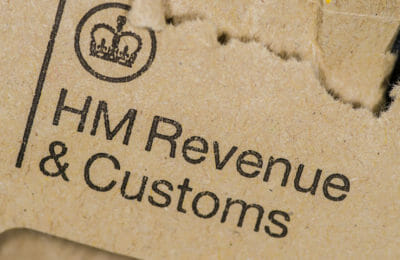Cashflow causing you sleepless nights?
“When the money keeps rolling in,” Antonio Banderas sang in Evita, “you don’t keep books.” But the lovely Antonio was wrong. However profitable your business, if you aren’t managing your cashflow properly, sooner or later you’ll likely run into serious trouble.
So what is cash flow, how can it go wrong, and how can we help save the day?
What is cashflow? What is a cashflow forecast?
In our guide to business terms, we defined cash flow as the total amount of money that comes in and goes out of your business. You use a cashflow forecast to predict how this will look over a set period – maybe 12 months. To keep an eagle eye on things, you can have a rolling forecast which you update every month or every week, always projecting 12 months into the future.
Aren’t profits what matters not cashflow?
Profits certainly do matter but they’re not enough on their own. Any money you make also has to be available when you need it.
You’ll know the saying: you have to speculate to accumulate.
In other words, if you want to make money, you have to spend money; perhaps on new equipment to produce a new product or open a new store, or to buy extra stock at Christmas. You’re confident these investments will more than pay for themselves but possibly only in the longer term.
Often there can be a delay before they do – perhaps several months delay. You will need time to manufacture and sell your new products, or may need to order your Christmas stock early.
If a lot of your money comes from other businesses, some may wait up to 60 days or longer to pay your invoices.
And in the meantime, you still need to pay all your normal costs, plus have something in reserve in case of unforeseen expenses. If you don’t have enough cash available to do that and you have no borrowing facility in place, then your business is potentially in serious, possibly terminal trouble.
Cashflow issues are not in themselves a sign that there is anything fundamentally wrong with your business. The key is to pick up on them early and head them off before they become serious.
That’s where we come in.
Here are just some of the ways your accountant can help you head off a cashflow crisis:-
Record-keeping and financial planning
This is the most obvious one.
As a small business owner with no formal accountancy training, trying to get your head round the ins and outs of business finance can be difficult and stressful.
It is usually better to admit this and let someone who is an expert (and who enjoys it) take over, than to muddle on and end up in difficulties.
And if you’re worried about the cost of paying for an accountant, just consider the financial headaches they can save you.
Preparing accurate cash flow forecasts with your accountant not only allows you to foresee possible issues in good time but also to predict different scenarios, such as an unexpected increase in costs or decrease in sales.
Reducing your expenditure
Your accountant is also a second pair of eyes.
He can look at your outgoings and identify areas where you can save money. Accountants can identify potential areas of overspend and see trends just by looking through your accounting records.
Don’t pay more tax than you need
Your accountant will also be able to make sure you’re claiming all the tax relief you’re entitled to.
Unless you are a tax expert, you may have no idea of all the allowances and tax breaks that are available to small businesses. These can be worth tens of thousands of pounds a year or more.
Tax planning
Business owners have multiple tax returns to fill in every year, including company tax and VAT returns and multiple payments to make. Accountants can help ensure you to meet deadlines – and manage the payments so they don’t have a sudden negative impact on your cash flow.
Sourcing of funding
Are there grants or other sources of funding you might be eligible for? Your accountant will be able to advise you – and help with the paperwork too.
Cash flow solutions
Sometimes, planning, putting money aside and making savings won’t be enough on their own – you’ll need to go to your bank and ask for some funds.
There are several options here.
If you just need short-term finance, your bank might offer you an overdraft or revolving credit – where the bank allows you the credit you need (up to a certain amount) on an ongoing basis, in return for interest. The rate of interest is usually higher for a business overdraft than for a long term loan so it won’t be much use if you need to borrow very large amounts.
A business credit card is another option. Both these methods often offer a period during which you can pay back the money interest-free.
If you need to borrow a large amount over a longer term you’ll clearly need to arrange a loan.
To obtain approval for this you’ll need to have a clear, properly worked out plan, backed up by figures, showing how you’re going to use the money and pay it back.
Most business loans are secured against commercial or personal assets (such as business premises), or require a personal guarantee from a business owner who undertakes to repay the loan if the business can’t. Ideally you would be advised to seek professional advice before offering any sort of personal guarantee.
Secured loans obviously involve less risk to lenders than unsecured loans (where nothing is offered as collateral), so lenders tend to be more willing to lend higher amounts and offer longer repayment periods and lower interest rates than they are with unsecured loans.
Another option is receivables financing, also called invoice financing – where, once you’ve invoiced your customers, the bank immediately pays you the money you’re owed. When your customers later pay you, the bank recoups its money, taking a small cut for its trouble. However, this only works for businesses whose customers are other businesses and that pay through invoices. It’s not available if your customers are mainly consumers who pay at the time of purchase.
At THP Chartered Accountants, we’ve helped countless small companies across the South East manage their cash flow, plan their finances, avoid cash crises and sail forward into a prosperous future.
With a team of more than 50 professionals, working out of four offices in Chelmsford, Sutton, Wanstead, and Saffron Walden, no problem is too big for us – or too small. Call us on 020 8989 5147 to chat about the accounting services and bookkeeping help we can offer you.
About Mark Boulter
Mark Boulter is responsible for the efficient running of the firm’s infrastructure, and ensuring that THP delivers the best client service. Promoting the vision and culture across all branches, people are the key: “I like people who have a fresh approach and I’m happy for them to run with their ideas,” he says.
Communication across departments is crucial and Mark pioneers this. He ensure that people and departments not only talk to each other, but that they share ideas– whether they’re about marketing, finance, sales, strategy or any other topic that can result in us offering a better service. “I think helping to develop the next generation of THP people is essential to our success,” Mark adds. “We’ve a lot of talented people and our way of doing things increasingly attracts ambitious newcomers who are looking for a fresh approach. That’s good for us and even better news for our clients.”












